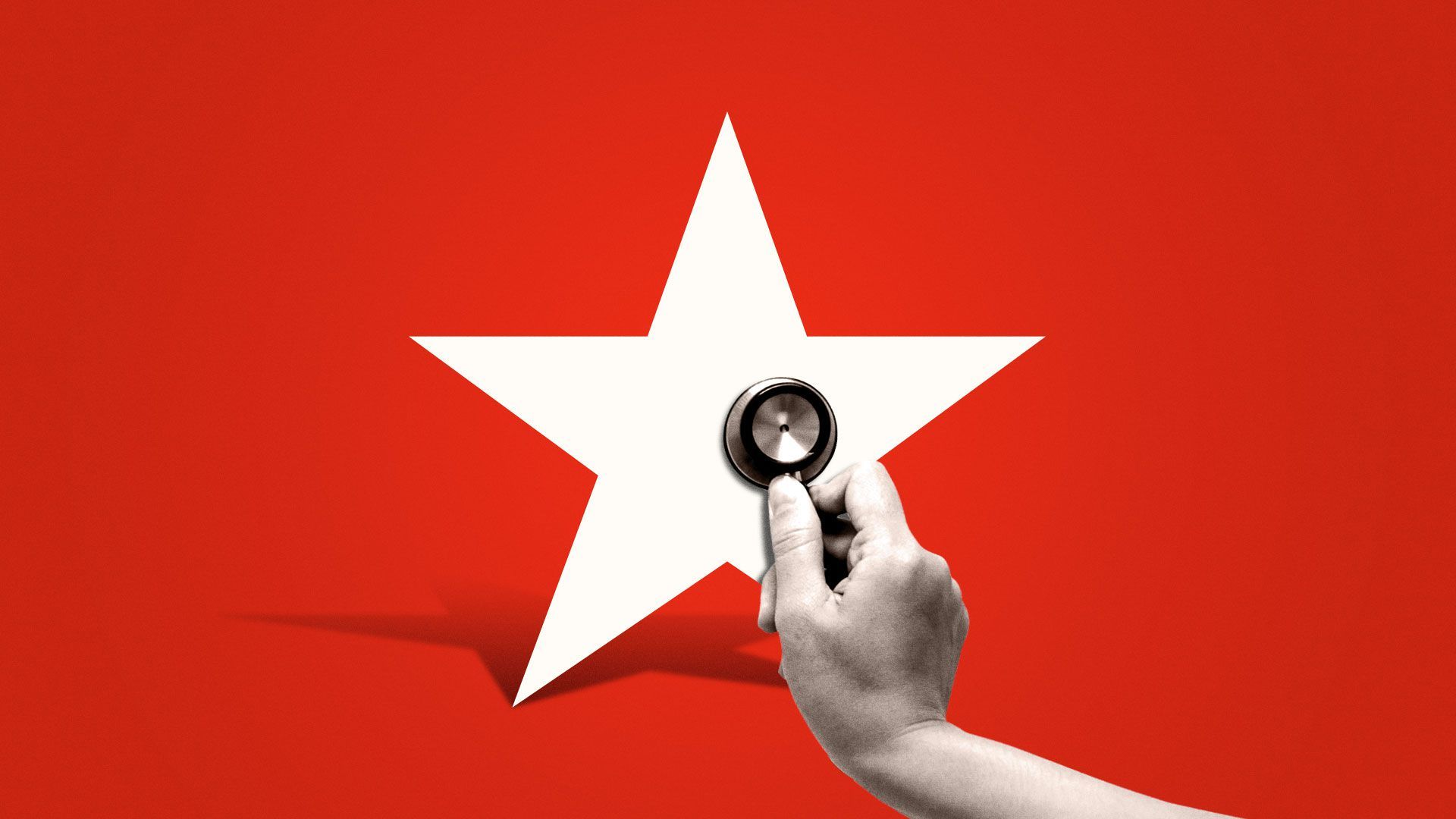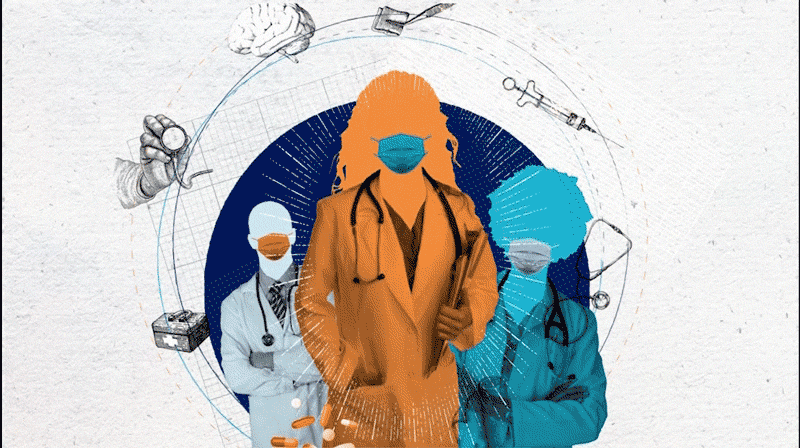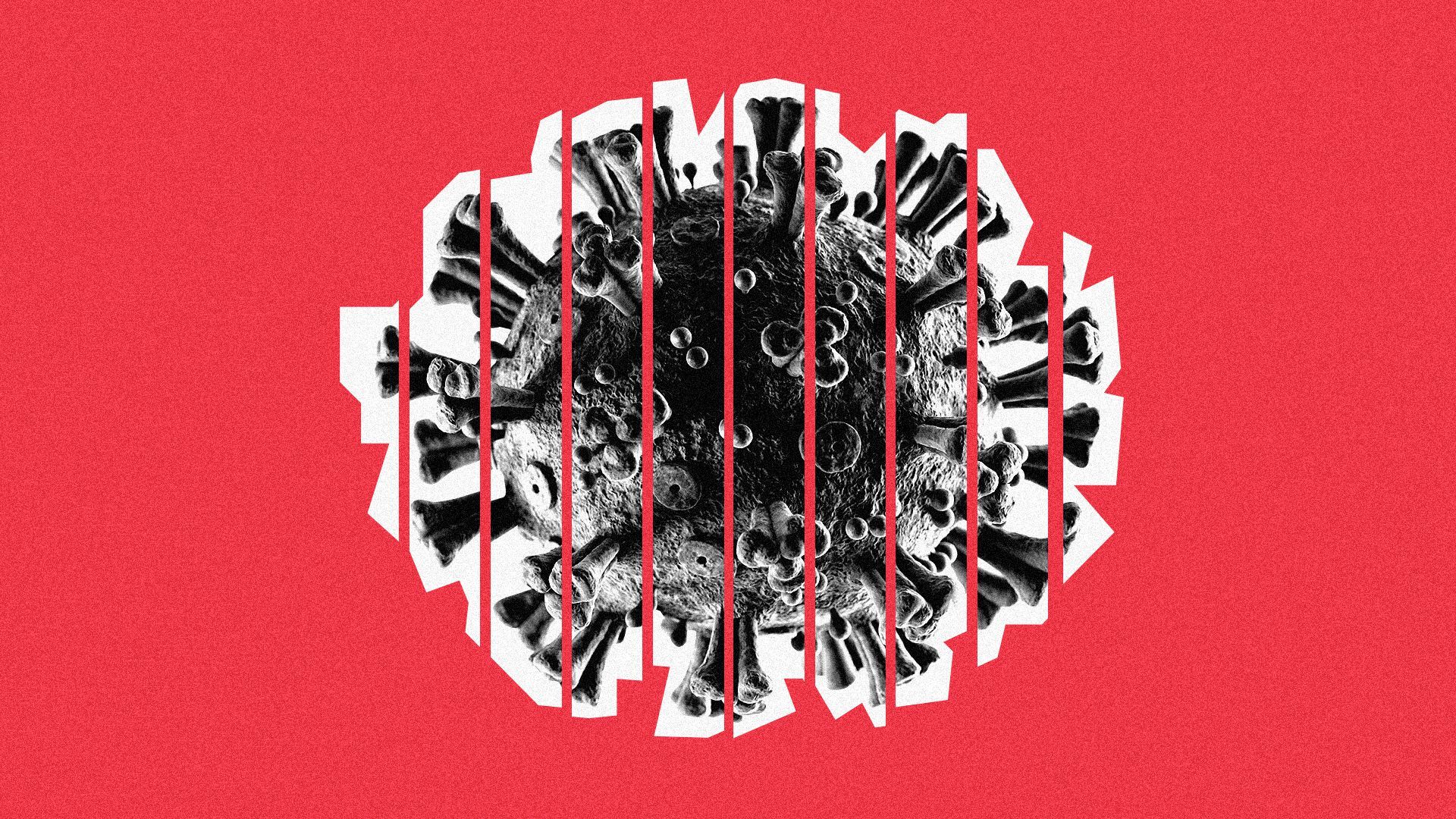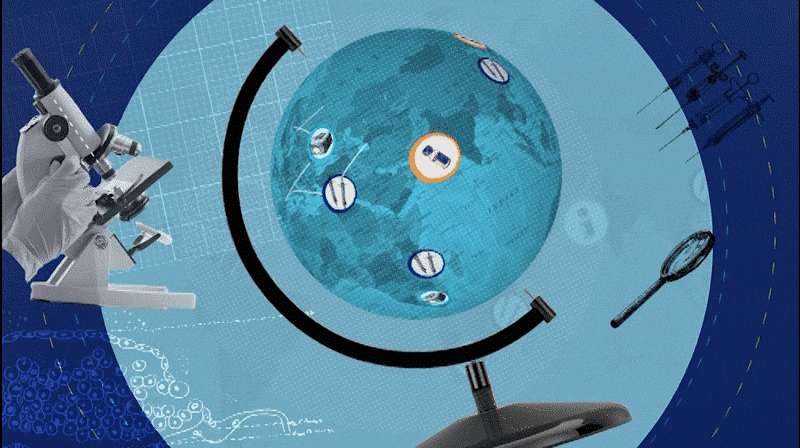| | | | | | | Presented By PhRMA | | | | Vitals | | By Caitlin Owens ·Oct 26, 2020 | | Good morning. 🚨 Tonight on "Axios on HBO": - Rep. Ilhan Omar (D-Minn.) says she wants every cabinet seat to go to a progressive if Joe Biden wins (see clip).
- Sen. Ted Cruz (R-Texas) tells Jonathan Swan that he is "very worried" about the national debt under President Trump (see clip).
- Axios co-founders Mike Allen and Jim VandeHei break down how a President Biden could transform the government during his first 100 days in office.
- Plus biochemist Jennifer Doudna talks about her and Emmanuelle Charpentier's recent Nobel Prize win and the possibilities that their gene-editing technology CRISPR could unleash.
Tune in at 11:16pm ET/PT on all HBO platforms. Today's word count is 1,014, or a 4-minute read. | | | | | | 1 big thing: The swing states where the pandemic is raging |  Data: The COVID Tracking Project, The Cook Political Report; Table: Andrew Witherspoon/Axios Several states that are likely to decide which party controls Washington next year have exceptionally large coronavirus outbreaks or are seeing cases spike. Why it matters: Most voters have already made up their minds. But for those few holdouts, the state of the pandemic could ultimately help them make a decision as they head to the polls — and that's not likely to help President Trump. The big picture: The U.S. is seeing a third wave of coronavirus cases, setting us up for a brutal winter. On Friday, a record 83,757 cases were recorded across the country. - Joe Biden has consistently polled ahead of Trump when voters are asked who they trust more to handle the coronavirus.
- Worsening outbreaks could also impact key Senate races, which will ultimately help decide how much power the president has.
Details: Wisconsin and Montana have the largest outbreaks of all states with close Senate races or that are competitive in the presidential election. - Maine — where Sen. Susan Collins is fighting to keep her seat — is the best off by far, with a low per capita case count that isn't growing very quickly.
- Florida, which has the most Electoral College seats up for grabs of all tossup states, has a smaller-than-average outbreak, which could mean less headwinds for Trump.
The bottom line: The virus isn't under control almost anywhere in the U.S., and even states like Florida have a relatively large and growing outbreak. Whether it's at the top of voters' minds or not, the winner of the election will be dealing with the pandemic and its fallout for a long time. - And given the current state of things, that person could be facing a worst-case scenario when they take office at the height of winter.
|     | | | | | | 2. America's poor health jeopardizes its future |  | | | Illustration: Eniola Odetunde/Axios | | | | From high levels of obesity and opioid addiction to inequities in access to care, America's pre-existing conditions make the country an easy target for COVID-19, as well as future pandemics that could cripple the U.S. for decades to come. Why it matters: One of the best ways the country could prepare for future threats — and boost its economy — is to improve Americans' overall health, Axios' Bryan Walsh reports. Even before COVID-19 arrived on its shores, the U.S. was an unusually sick country for its level of wealth and development. By the numbers: That much was shown by the Global Burden of Disease (GBD) project, a massive database of what kills and sickens people around the world, which published its latest figures for 2019 in The Lancet last week. - Mortality for mothers and children under 5 is 6.5 per 1,000 live births in the U.S., compared to 4.9 for other wealthy countries.
- Healthy life expectancy — the number of years people can expect to live without disability — is 65.5 years in the U.S., more than two decades fewer than in Japan.
- Overall life expectancy in the U.S. hasn't risen since 2010, in part because of a 16.7% increase in the number of deaths due to cardiovascular disease since that year.
Context: Lancet editor-in-chief Richard Horton has called COVID-19 a "syndemic" — a synergistic epidemic of a new and deadly infectious disease and numerous underlying health problems. The U.S. is squarely in the heart of that syndemic. Go deeper. |     | | | | | | 3. How you and I can prevent thousands of deaths | | Wear a mask. It's that simple. If 95% of us do so in public, it could save 130,000 lives between Sept. 22 and the end of February, per a new study published in Nature. The big picture: Under states' current mitigation strategies, the model estimates that more than 500,000 Americans could have died over the course of the pandemic by Feb. 28. - This assumes that states would start implementing social distancing mandates again once they hit a daily death rate of 8 deaths per 1 million people.
If states continue to ease mandates and don't reinstate them in response to rising death rates, and behavior doesn't vary, more than a million Americans could have died by the end of February. Yes, but: How bad the pandemic gets over the next few months is entirely dependent on human behavior. - "It's not a prediction or forecast, because we can will this number out of existence," said Shweta Bansal, an infectious disease modeler at Georgetown University, told NYT.
The bottom line: "Achieving near-universal mask use ... has the potential to save the most lives while minimizing damage to the economy," the authors write. - "It is likely that US residents will need to choose between higher levels of mask use or risk the frequent redeployment of more stringent and economically damaging [social distancing mandates]; or, in the absence of either measure, face a reality of a rising death toll."
|     | | | | | | A message from PhRMA | | The key to developing more – and more affordable – medicines | | |  | | | | One reason so many COVID-19 vaccine candidates are in late stage clinical trials is because companies are able to share information around vaccine technology. Our IP system – including patents – provide scientists with information that leads to more options for all kinds of treatments. | | | | | | 4. The dangerous instability of school re-openings |  | | | Illustration: Eniola Odetunde/Axios | | | | Schools across the country have flip-flopped between in-person and remote learning — and that instability is taking a toll on students' ability to learn and their mental health, Axios' Erica Pandey reports. The big picture: While companies were able to set long timelines for their return, schools — under immense political and social strain — had to rush to figure out how to reopen. The cobbled-together approach has hurt students, parents and teachers alike. - "In hindsight, we can say it would have been better to go all-remote," says Jon Hale, a professor of education at the University of Illinois. "But there was so much pressure to open."
What's happening: Without clear federal or state standards, re-opening strategies — which range from lottery systems that determine who gets to come to school to on-and-off in-person learning depending on the week's caseloads — have been disorganized at students' expense. Why it matters: The flip-flopping is hurting already-vulnerable students and exhausting teachers, experts tell Axios. Go deeper. |     | | | | | | 5. Catch up quick |  | | | Illustration: Aïda Amer/Axios | | | | The U.S. reported 83,718 new coronavirus cases on Saturday, marking the second day in a row that the country topped 80,000 daily infections, according to data from Johns Hopkins University. Marc Short, Vice President Mike Pence's chief of staff, tested positive for the coronavirus Saturday and is quarantining, according to a White House statement. Pence will continue traveling. A recent study found countries with certain international travel restrictions have suffered fewer COVID-19 deaths, Bryan writes. Celebrating Halloween and Día de los Muertos will be difficult and more isolated this year, but can still be done while minimizing harm to others, Axios Marisa Fernandez writes. What you need to know. Polish President Andrzej Duda has tested positive for the coronavirus, a spokesperson announced on Saturday. Italian Prime Minister Giuseppe Conte announced new coronavirus restrictions on Sunday that require face coverings be worn outdoors and mandate bars and restaurants close early. Spanish Prime Minister Pedro Sánchez on Sunday announced a new state of emergency that imposes a curfew in an effort to combat a rising number of coronavirus cases. |     | | | | | | A message from PhRMA | | The key to developing more – and more affordable – medicines | | |  | | | | One reason so many COVID-19 vaccine candidates are in late stage clinical trials is because companies are able to share information around vaccine technology. Our IP system – including patents – provide scientists with information that leads to more options for all kinds of treatments. | | | | | | Axios thanks our partners for supporting our newsletters.
Sponsorship has no influence on editorial content. Axios, 3100 Clarendon Blvd, Suite 1300, Arlington VA 22201 | | | You received this email because you signed up for newsletters from Axios.
Change your preferences or unsubscribe here. | | | Was this email forwarded to you?
Sign up now to get Axios in your inbox. | | | | Follow Axios on social media:    | | | | | |








No comments:
Post a Comment